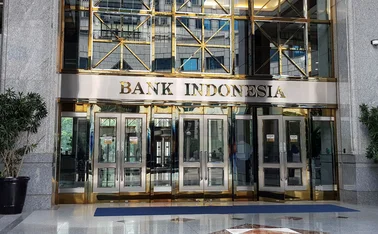
Fed should scrap apolitical stance, urges former senior official
Dudley says Fed should set rates with Trump’s re-election chances in mind

The US Federal Reserve should consider setting its policy rate with president Donald Trump’s re-election chances in mind, former New York Fed president William Dudley has said.
Dudley warns that Trump taking on a second term could pose a threat to the US and global economies, as well as the Fed’s independence in trying to achieve its dual mandate.
“If the goal of monetary policy is to achieve the best long-term economic outcome, then Fed officials should consider how their decisions will affect the political outcome in 2020,” Dudley said in an op-ed published by Bloomberg on August 27.
The Fed rejected Dudley’s suggestion.
“The Federal Reserve’s policy decisions are guided solely by its congressional mandate to maintain price stability and maximum unemployment,” a spokesperson from the central bank tells Central Banking. “Political considerations play absolutely no role.”
Dudley, who also served as the Federal Open Market Committee’s vice-chair, argued that in reducing rates, the Fed may actually be advancing the downside risk to the economy.
“The Fed’s accommodation encourages the president to escalate the trade war further, increasing the risk of a recession,” he said.
The central bank’s efforts to cushion the blow might not be merely ineffectual. They might actually make things worse
William Dudley, New York Federal Reserve
“The central bank’s efforts to cushion the blow might not be merely ineffectual. They might actually make things worse,” he added.
The Fed reduced rates on July 31 by 25 basis points to a range of between 2% and 2.25%. The FOMC described the move as an “insurance” or “risk management” rate cut to respond to downside risks to the outlook from trade tensions and global growth.
Powell restated the FOMC’s concerns about trade in his remarks at Jackson Hole on August 23. He said the trade war was playing a role in the slowing global economy, and dampening capital spending and manufacturing in the US.
However, he said the trade war has created a “new challenge” for policy-makers and monetary policy cannot provide a “settled rulebook” for trade. He suggested the Fed has limited capacity to respond to the trade tensions.
Moments before the speech, China announced a new round of tariffs of between 5% and 10% on $75 billion of US imports, starting next month. Later that day, Trump announced he was increasing existing tariffs from 25% to 30% on $250 billion worth of Chinese imports from October 1. He also said another existing tariff on $300 billion worth of Chinese imports will be raised to 15% from 10% from September 1.
Stick to your knitting
Dudley urged the Fed to be even more forthcoming with its stance on Trump’s trade policy than it has been in recent communications. He suggested the Fed should state explicitly that it will not reduce rates to accommodate “bad choices on trade policy”, arguing that by reducing rates the central bank is bailing out the administration.
The Fed should make it “abundantly clear that Trump will own the consequences of his actions”, he added.
Economics professor Barry Eichengreen recently authored an op-ed for Central Banking, arguing some similar points to Dudley. Eichengreen said the Fed should make it ”indisputably clear” that the Trump administration’s trade policies will damage the economy.
He cautioned against using policy for political ends. “Monetary policy shouldn’t be used to pressure other elements of the policy community to correct their mistakes,” he said. “Central banks should stick to their knitting.”
Only users who have a paid subscription or are part of a corporate subscription are able to print or copy content.
To access these options, along with all other subscription benefits, please contact info@centralbanking.com or view our subscription options here: http://subscriptions.centralbanking.com/subscribe
You are currently unable to print this content. Please contact info@centralbanking.com to find out more.
You are currently unable to copy this content. Please contact info@centralbanking.com to find out more.
Copyright Infopro Digital Limited. All rights reserved.
As outlined in our terms and conditions, https://www.infopro-digital.com/terms-and-conditions/subscriptions/ (point 2.4), printing is limited to a single copy.
If you would like to purchase additional rights please email info@centralbanking.com
Copyright Infopro Digital Limited. All rights reserved.
You may share this content using our article tools. As outlined in our terms and conditions, https://www.infopro-digital.com/terms-and-conditions/subscriptions/ (clause 2.4), an Authorised User may only make one copy of the materials for their own personal use. You must also comply with the restrictions in clause 2.5.
If you would like to purchase additional rights please email info@centralbanking.com







